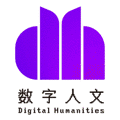您正在访问旧版存档页面。This is the old version archive of our site.
Inside the Trading Zone: Thinkering in a Digital History Lab
作者:Andreas Fickers , University of Luxembourg
Tim van der Heijden , University of Luxembourg
转载来源:Digital Humanities Quarterly, 2020:14.3, http://www.digitalhumanities.org/dhq/vol/14/3/000472/000472.html
本文的目的是批判性地反思在数字时代做历史研究的实践和认识论挑战。该分析基于博士培养单位(DTU)“数字历史和解释学”的案例研究,这是一个跨学科的研究和培训项目,建立在卢森堡大学的卢森堡当代和数字历史中心(C²DH)。DTU被设计成应用“思考”方法的跨学科交流空间,即对技术进行修补,并结合对数字历史实践的批判性反思。在此案例研究的基础上,本文探讨了如何在实践中构建一个跨学科的交流空间,以及如何将这个交流空间置于物理工作环境中,如数字历史实验室和共享办公空间。
作者简介:
Andreas Fickers
Andreas Fickers is the director of the Luxembourg Centre for Contemporary and Digital History (C²DH) and head of the DH-Lab. He studied history, philosophy and sociology and is currently Professor for Contemporary and Digital History at the University of Luxembourg. He’s head of the FNR funded Doctoral Training Unit “Digital History & Hermeneutics” (DTU) and coordinates the Trinational doctoral school together with Prof. Dr Dietmar Hüser (Universität des Saarlandes) and Prof. Dr Hélène Miard-Delacroix (Université Paris-Sorbonne). He’s also prinicipal investigator of the Impresso project and was co-editor of VIEW, the Journal of European Television History and Culture. He’s currently the Luxembourg national coordinator of DARIAH-EU and member of the joint research board of Humanities in the European Research Area (HERA).
Tim van der Heijden
Tim van der Heijden is a post-doctoral researcher at the Luxembourg Centre for Contemporary and Digital History (C²DH) of the University of Luxembourg. He holds a PhD in Media History from Maastricht University and a research master’s degree in Media Studies with distinction from the University of Amsterdam. Between 2017 and 2019, he worked as a coordinating post-doc of the FNR funded Doctoral Training Unit “Digital History and Hermeneutics” (DTU). He is currently a researcher within the project “Doing Experimental Media Archaeology” (DEMA), which explores the heuristic potential of hands-on experimentation with analogue media technologies as a practical and sensorial approach to media historiography.
